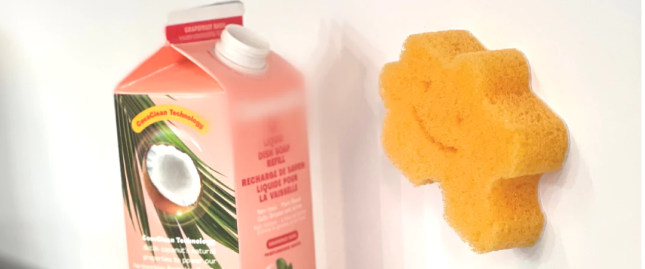Octopuses? Octopi? Octopodes?

Octopus is a beloved food delicacy in South Korea, with 36,899 tons consumed in 2020. But domestic octopus fishing in the country is on the decline due to marine pollution, improper fishing techniques, and illegal fishing. Now, a government project—part of the country’s ‘Digital New Deal’—is planning to use technology to turn the tide.
The ‘Smart Octopus Service’ targets Shinan-gun County in the province of Jeollanam-do. The service aims to eliminate illegal fishing operations, one of the major causes of the fall in octopus population in the region. CCTV cameras have been installed to separate authorized and non-authorized fishing ships, and smart sensors have been placed on over 50 registered vessels.
But the project is not just to catch illegal fishermen. The service also provides smart, innovative natural resource management systems that make it easier for both authorities and fishing communities to monitor the mudflats and ocean waters where octopuses live.
Drones are used to capture images of mudflats across Korea, which are then fed into AI systems to extract data. In total, over 60,000 data points were made available to locate octopus trails. This data is accessible to fishermen through a web-based app interface called ‘Smart Shinan’. This app allows users to view the location of octopuses and identify environmental changes in the tidal flats.
The next step for the project is to expand the Smart Octopus Service to more locations across Korea. “The service became a success case of the Digital New Deal initiative as it has significantly improved productivity of natural resources overall,” the Korean Ministry of Science and ICT explained in a press release. “By replicating the service in other communities, we will continue to facilitate digital transformation in marginalized farming and fishing villages.”
Technology is increasingly being deployed to tackle issues impacting the deep blue sea. Recently, there have been sightings of airborne lasers that map seagrass meadows and AI-powered smart fishing nets that reduce the impact on marine life.
Source: Katrina Lane from Springwise (January 7, 2022)
More Korean Innovation News

The Rise of Womance: Women Spearhead Korean Entertainment

A Korean Marriage Story

Jwipo, Your New Jerky Obsession

To Binge or not to Binge?

The K-pop Comeback: Returning from Military Service

Longcations: Escaping to Vietnam

Kkondaes at Work: GenZ and Millennials Battle at the Office

The American Bansang Experience


